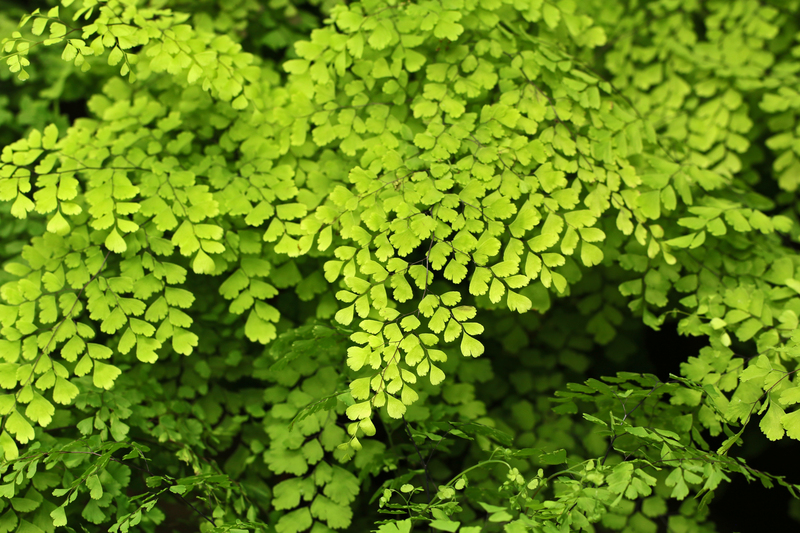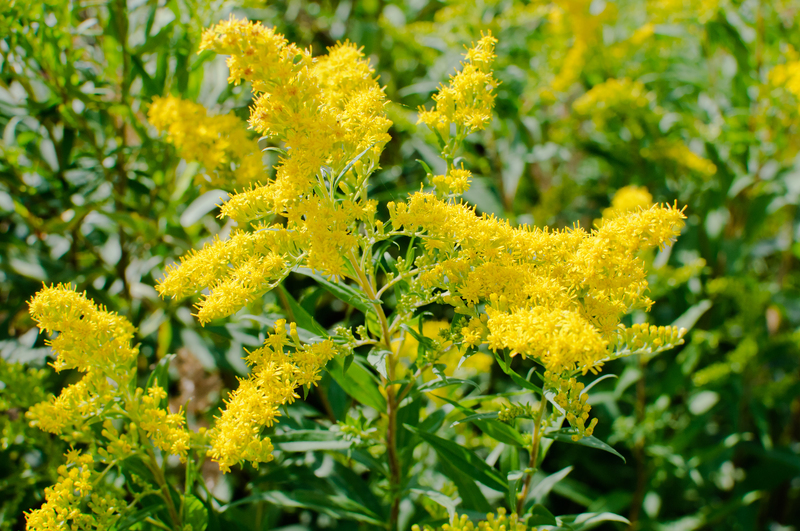Secrets to Succeeding With Tropical Plants in UK Outdoor Spaces
Are you fascinated by the allure of tropical plants but think the UK's weather is too harsh for their survival? You're not alone! Many garden enthusiasts dream of transforming their outdoor spaces into lush, exotic paradises. The good news is: with the right approach, anyone can enjoy the lush bounty of tropical foliage right here in the UK. In this comprehensive guide, we'll uncover the secrets to succeeding with tropical plants in UK outdoor spaces and help you design, plant, and nurture your very own exotic oasis.
Understanding the Challenges of Growing Tropical Plants Outdoors in the UK
Before diving into plant selection and care routines, it's crucial to understand why growing tropical plants outdoors in the UK can be challenging. The UK's temperate climate offers milder summers and long, wet winters, which can be tough for plants native to warm, humid regions.
- Temperature fluctuations - Frequent cold snaps, especially in late spring and early autumn, can stress tropical plants.
- High moisture levels - Prolonged dampness can cause root rot and encourage fungal diseases.
- Reduced daylight - Short days in winter can impact growth and vitality.
- Frost risk - Many exotics are not frost tolerant and need protection as temperatures drop.
Despite these hurdles, careful plant selection and smart gardening practices make it possible to enjoy thriving tropical gardens in the UK.

The Ultimate List: Best Tropical Plants for UK Gardens
Some tropical plants are surprisingly resilient and adapt well to UK gardens with basic protection. Here's a list of popular species that handle British conditions, along with tips for each:
- Trachycarpus fortunei (Windmill Palm): Extremely hardy and tolerates frosts. Provides an instant tropical feel with fan-like leaves.
- Musa basjoo (Hardy Banana): Fast-growing, with stunning leaves. Though summer fruits are rare, the foliage alone is dramatic.
- Phyllostachys nigra (Black Bamboo): Striking canes and versatile screening plant.
- Fatsia japonica (Japanese Aralia): Glossy palmate leaves, very shade tolerant and ideal for UK climates.
- Canna indica (Indian Shot): Bold flowers and lush leaves offer vibrant colour.
- Hedychium gardnerianum (Kahili Ginger): Fragrant blooms and tropical presence, benefits from winter mulch.
- Cordyline australis (Cabbage Tree): Spiky, architectural leaves often mistaken for palm; robust and weather-resistant.
- Dicksonia antarctica (Tree Fern): Ancient fern with majestic fronds, thrives in moist, shady spots.
- Agapanthus africanus (African Lily): Pompom blooms and strappy foliage; protect crowns from severe frost.
For variety, intersperse these hardy plants with temporary exotics such as Colocasia (Elephant's Ear), or Brugmansia (Angel's Trumpet) - bring these indoors over winter for the best results.
Site Selection: The Foundation of Tropical Success
Location is vital! In the UK, placement can make or break your tropical garden ambitions. Consider these tips:
- Seek shelter: Plant exotics by fences, walls, or buildings to shield from cold winds and create microclimates.
- Maximize sunlight: Choose the warmest, sunniest spot - typically a south- or west-facing aspect.
- Improve drainage: Excess water is fatal for many tropicals. Elevate beds, add grit or sand, and never let roots sit in water.
- Leverage reflective surfaces: Pale walls or patios can reflect extra warmth and light towards your tender plants.
Tip: Use raised planters or containers for extra protection and mobility.
Protecting Your Tropicals: Winter & Weather Defense
One of the biggest secrets to growing tropical plants outdoors in the UK lies in winter protection strategies. Here's how to safeguard your investment:
Mulching
- Apply a thick mulch of straw, bark, or dry leaves around the plant base before the first frost. This acts as insulation for the root zone.
- For bananas and tree ferns, crowning mulch at the top protects dormant buds from freezing damage.
Wrapping and Covering
- Wrap tender stems and trunks with horticultural fleece or bubble wrap - but avoid plastic that can trap moisture and rot bark.
- Use cloches or mini greenhouses for potted specimens and especially fragile species.
Temporary Housing
- Move portable containers into a cold greenhouse, porch, or conservatory during harsh spells.
- Heated propagators, heat mats, or even fairy lights can help maintain temperature for prized rarities.
Consistent vigilance from November to March is crucial. Remove covers as soon as warmer weather returns to prevent fungal issues.
Soil Secrets: Creating the Perfect Growing Medium
Just as important as warmth is soil quality. Most exotic plants for UK gardens demand a free-draining yet rich compost.
- Amend heavy clay soils with organic matter, grit, or horticultural sand to promote drainage.
- Feed the soil: Blend in well-rotted compost or manure before planting and top-dress annually.
- Check pH: Some tropicals prefer slight acidity - test your soil, and add ericaceous compost if needed.
Remember, water-logged soils are the most common cause of tropical plant failure in the UK.
Watering Wisdom: Quenching Exotic Thirst Sensibly
Many assume that tropical plants need constant watering, but in the UK's often rainy summers, overwatering is more likely to harm your collection.
- Water early: Mornings are best, allowing surplus moisture to evaporate by evening and reducing fungal risk.
- Container care: Potted tropicals dry out faster and may need daily watering during heatwaves, but always check before watering.
- Irrigate deep, not often: Encourage deep roots by watering less frequently but thoroughly.
- Avoid wetting leaves late in day: This encourages disease; water directly at the root zone where possible.
Feeding Your Tropicals: Nutrition for Lush Growth
Luscious foliage and abundant flowers depend on feeding. Most tropical plants in the UK are hungry growers, with high requirements for nitrogen and potassium.
- Start in spring: Use a slow-release fertilizer as growth accelerates, repeating midsummer for showy blooms.
- Supplement with seaweed or compost tea every few weeks for trace minerals and overall plant health.
- Reduce feeding in autumn: This helps plants harden off and prepares them for winter dormancy.
Note: Avoid excessive leaf feeding during damp, cool spells - it can invite powdery mildew and other fungal issues.
Designing Your UK Tropical Paradise
Secrets to succeeding with tropical plants in UK outdoor spaces aren't just about survival - it's about creating a visual impact. Here's how to make your garden stand out:
Go Bold With Foliage
- Mix leaf shapes and sizes - combine large banana or Colocasia leaves with spiky Cordyline for drama.
- Dapple in ferns or bamboo for vertical grace and movement.
Layer for Lushness
- Create a 'jungle feel' by staggering plants: tall palms at the back, mid-height Cannas, and low-growing ferns or ginger at the front.
Accent With Colour
- Pick vivid flower spikes or jewel-toned foliage to brighten dark corners.
- Add tropical bedding plants like Coleus, Begonia or Impatiens each spring for splashes of exotic hues.
Water Features
- Still or moving water - even a small pond or trickling fountain - enhances humidity and completes the exotic vibe.
Pest and Disease Management in UK Tropical Gardens
While most established exotics have few natural predators in the UK, vigilance against pests and diseases is still essential:
- Inspect regularly: Watch for aphids, red spider mites, slugs, and snails (especially on lush foliage).
- Promote airflow: Avoid overcrowding; good circulation reduces rot and mildew risks.
- Go organic: Use natural sprays like neem oil, or introduce beneficial insects to keep pests in check.
- Remove dead leaves promptly to prevent fungal infections.
Healthy soils, adequate sunlight, and proper feeding strengthen plant defenses naturally.
Overwintering Tips: Ensuring Survival Into Spring
The ultimate secret to overwintering tropical plants outdoors in the UK is a combination of resilience and timely intervention.
- Hardy varieties: Many, like Trachycarpus palms, require only basic mulch even in harsh winters.
- Tender species: Store tubers, bulbs, and rhizomes (such as Canna or Dahlia) indoors in dry, frost-free conditions until spring.
- Container plants: Shift to covered or heated zones, or wrap pots with insulating material to protect roots.
- Check regularly: Look for signs of rot or desiccation and water sparingly only if needed.
Spring is time to gradually harden off container plants by moving outside for longer periods each day before returning them to their display positions.
Year-Round Maintenance for Tropical Beauty
- Early spring: Prune away winter damage, repot rootbound exotics, and begin feeding.
- Summer: Watch for pests, deadhead flowering plants, and stake tall stems if exposed to winds.
- Autumn: Tidy up fallen foliage, cut back perennials, reduce water, and begin winter protection.
- Winter: Inspect covers, ventilate protected plants on sunny days, and avoid overwatering.

Common Mistakes to Avoid with Exotic Plants in the UK
- Ignoring drainage: Water-logged roots are the #1 killer of exotics.
- Overcrowding: Stifles airflow and invites disease.
- Underwatering in summer: Exposed, large-leaved plants dry out fast in heat waves.
- Forgetting protection: Delaying winter wraps can spell disaster after sudden cold snaps.
- Poor feeding routines: Too much or too little can cause weak, dull plants.
Conclusion: Unlock Your UK Garden's Exotic Potential
Successfully growing tropical plants in UK outdoor spaces is within your reach. With careful plant selection, smart garden positioning, effective winter protection, and year-round maintenance, you can create a thriving, beautiful, and unique tropical display.
Take inspiration from subtropical landscapes, experiment with new species, and remember that every seasoned gardener learns from experience. Embrace the challenge, and you'll discover how rewarding it is to bring a taste of the tropics to your own British backyard!
Ready to transform your garden? Start planning your UK-friendly tropical paradise today and enjoy the vibrant, exotic beauty for years to come.